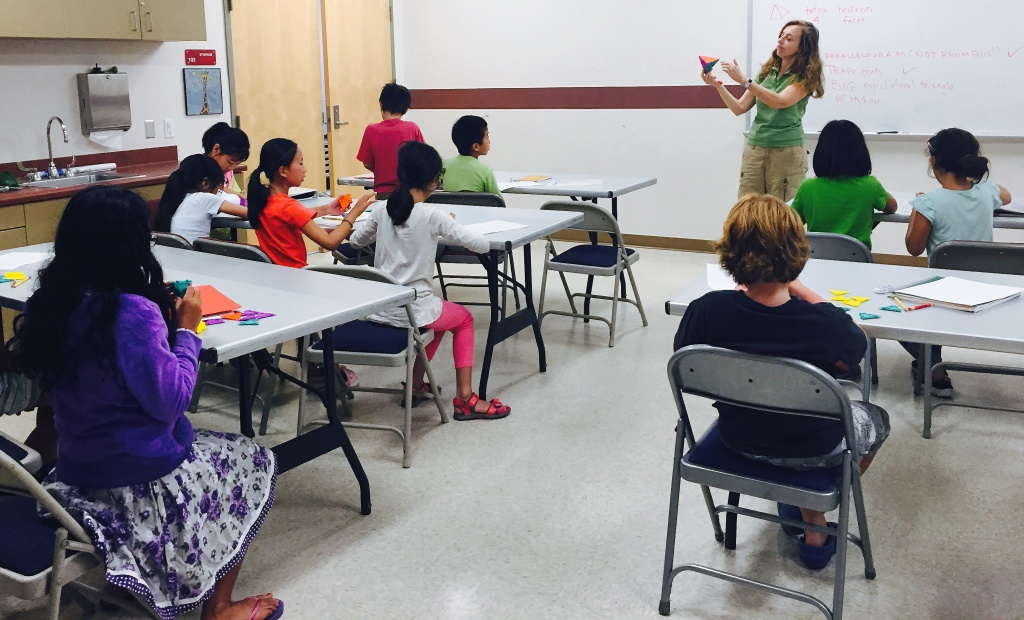If you are going to coach a math club, it is likely that you will come across at least some of the following challenges:
- A classroom full of students at different levels, despite the fact that most students in the math club self-selected to be there
- Creating an atmosphere where students feel emotionally safe enough to participate in the class– meaning to risk providing wrong answers
- Assessing your students’ understanding, other than by testing
The three challenges are interrelated, and I will describe some ways of addressing them. Most of the ideas are gathered from other successful teachers and were chosen because the issues they address echoed my experiences in Math Club.
Students at different levels
This is obviously a loaded subject, and I’d like to focus just on the interpersonal dynamics of a class in which students are performing at different levels. Let’s be honest: math clubs tend to attract high performing students, and, in my experience, such students often have a strong desire to demonstrate to everyone else just how high performing they are. If you are starting a math club, you need to be attuned to this from the very beginning. Otherwise, some serious damage can be done to the learning experience of your students who are either not as high performing, or less confident. My personal suggestion is to nip in the bud any behavior that smacks of arrogance. Do not wait until the damage is done.
If there is one phrase that I could eliminate from any math club discussion, it would be “This is easy”. This phrase, and its consequences, are addressed in an article by Tracy Zager, a well-known math teacher and author: “This is easy: The litte phrase that causes big problems.” Zager explains the title by describing the paralyzing effect this phrase has on students who are struggling with a problem and hear one of their classmates make this announcement.
It’s OK to make mistakes in front of your classmates
All teachers know how much more fun and engaging a class can be if students participate. But this comes with a risk: what if the answer a student provides is wrong? This is beautifully addressed in the blog post 5 Ways to Respond When Students Offer Incorrect Answers by Harvey Mudd College Professor Rachel Levy. Although the intended audience of the article are college professors, it applies equally well to teachers and coaches of students of any age. The only thing I would add to Professor Levy’s ideas that is particularly suitable for a younger students’ math club is to keep the atmosphere light, even goofy. Make jokes. Make fun of yourself. One extremely successful teacher, Anthony Yom, even let his East LA students make fun of him for knowing nothing about authentic Mexican food.
“Does that make sense?”
Guilty as charged: I tend to say this a lot. But a recent article by teacher Dylan Kane made me realize that this may not be the best way to assess my students understanding. In his blog post Things Not to Say, Kane says that this question may not be as innocent as it sounds. “… the implication here is ‘whoever feels confused, please share your inadequacy with the class’. Instead, I can ask students what was unclear, or ask a more specific question that acts as more productive formative assessment.” I would add to this that sometimes, an anonymous online survey (for example, by Google) can give you lots of data about the holes in students’ understanding that you wouldn’t otherwise get in class.
In Conclusion
Be patient with yourself if you are struggling to create a classroom environment that you would like to have. It’s often not an easy, one step process. Talk to your fellow coaches. Find a family you’re comfortable with and talk to the child and/or the parents to gather their feedback about the classroom environment. Most importantly, learn from your and other coaches’ mistakes.
